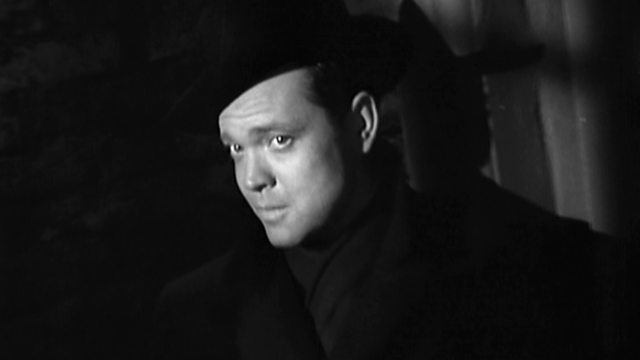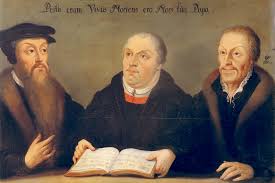A Most Mischievous and Ill-Informed Half Truth

Etienne Gilson once commented that to be a competent philosopher, one also needs to be a competent historian of philosophy. Given some of the heterodox ideas currently being promoted by those who claim to be confessional Protestants, Gilson’s rule would seem to apply to theologians as well.
In my recent lecture on the doctrine of God for the Paideia Center at Reformed Theological Seminary, I observed that one of the justifications for Protestants today revising and rejecting the classical theism of Nicaea and subsequent Nicene developments is the assertion that the Reformers did not subject the doctrine of God to the same rigorous examination in light of scripture as they did other doctrines, such as justification or the sacraments.
theism of Nicaea and subsequent Nicene developments is the assertion that the Reformers did not subject the doctrine of God to the same rigorous examination in light of scripture as they did other doctrines, such as justification or the sacraments.
Those who make such an assertion demonstrate an incompetent grasp of history. Yes, it is true that the Reformers did maintain the classical doctrine of God. But we cannot conclude from this simple fact that this was because they did not subject it to their view of scripture as the norming norm. We first need to take account of how and why the Reformers did reaffirm the classical position. When this is done, the assertion that the Reformers held unreflectively to an unreformed doctrine of God appears at best to be only a half-truth -- and a mischievous and ill-informed one at that.
It is mischievous because the argument that the Reformers did not sufficiently reform the doctrine of God is typically deployed by someone who wants to justify their own significant revision of the classical position while yet seeming to be orthodox and Protestant. The move is thus rhetorically very clever: It allows the one repudiating the content of the Reformers’ theology to present that repudiation as if it is simply a more faithful and consistent application of the Reformers‘ method. In short, he claims to reject the Reformation doctrine because he honors the Reformation spirit.
 It is ill-informed because it appears to be ignorant of the pattern of doctrinal discussion in the Reformation. The early Reformation writings of numerous Reformers – most notably Melanchthon and Calvin – do reveal significant hesitancy in deploying the fine-tooled technical language of classical Trinitarianism. It would seem (not surprisingly) that they desired to set forth the Christian faith in terms as close to those of the Bible as possible. But by the time we reach the late the late 1530s the traditional Trinitarian language is becoming once again prominent. And the reason for this is simple. The Reformers, including Melanchthon and Calvin, learned the hard way – through contemporary challenges to the biblical doctrine of God – that theologians had developed the technical language and concepts of classical Trinitarianism because these provided the best and most effective means of expounding, defending, and preserving the biblical faith. The idea that somehow the Reformers merely assumed the classical doctrine without thoroughly testing it by scripture is therefore simply incorrect. And contemporary theological revisionism predicated on such a notion is therefore historically incompetent.
It is ill-informed because it appears to be ignorant of the pattern of doctrinal discussion in the Reformation. The early Reformation writings of numerous Reformers – most notably Melanchthon and Calvin – do reveal significant hesitancy in deploying the fine-tooled technical language of classical Trinitarianism. It would seem (not surprisingly) that they desired to set forth the Christian faith in terms as close to those of the Bible as possible. But by the time we reach the late the late 1530s the traditional Trinitarian language is becoming once again prominent. And the reason for this is simple. The Reformers, including Melanchthon and Calvin, learned the hard way – through contemporary challenges to the biblical doctrine of God – that theologians had developed the technical language and concepts of classical Trinitarianism because these provided the best and most effective means of expounding, defending, and preserving the biblical faith. The idea that somehow the Reformers merely assumed the classical doctrine without thoroughly testing it by scripture is therefore simply incorrect. And contemporary theological revisionism predicated on such a notion is therefore historically incompetent.
Of course, there is a further obvious problem when anyone who subscribes to the Westminster Standards, the Three Forms of Unity, or the 1689 Baptist Confession, claims that classical theism needs revision. These confessions explicitly affirm classical theism as biblical and those who take ex animo vows to such are therefore committed to believing and maintaining the same. If they cannot do so with a good conscience, they should not take the vows. It is simply dishonest to affirm at one’s ordination that which one then denies in one’s teaching.
 As I noted at the start, Gilson’s rule clearly applies as much to theologians as to philosophers.
As I noted at the start, Gilson’s rule clearly applies as much to theologians as to philosophers.
Carl R. Trueman is Professor of Biblical and Religious Studies at Grove City College, Pa, and a Visiting Professor of Historical Theology at Westminster Seminary in California.




